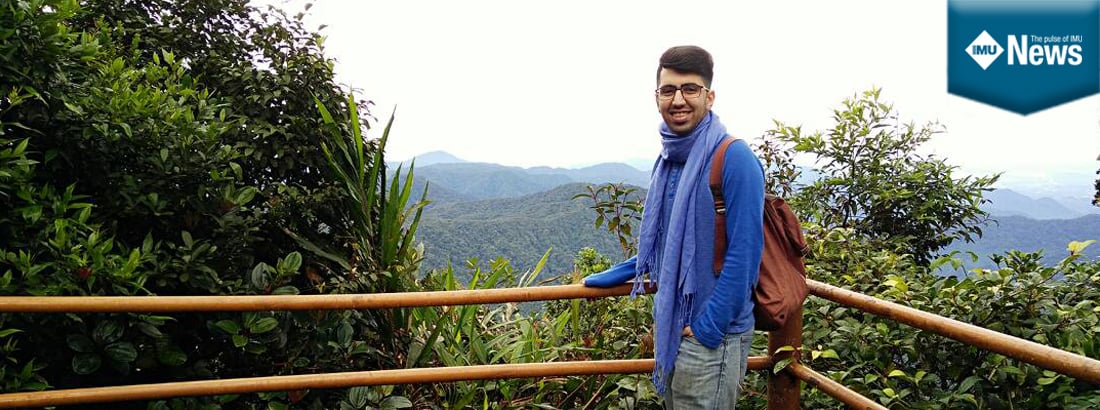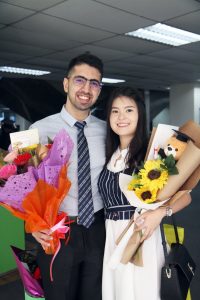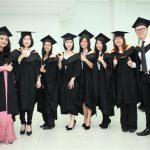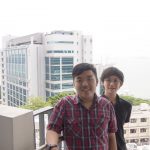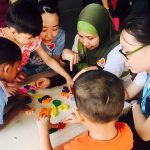When I was asked to write a piece for IMU News, I took days to think about what I should write that people would want to read. Plus, who was I writing for? Adolescents struggling to decide what their careers would be? Those who didn’t know how to deal with university life or any difficult situation in their lives? My family? My friends? Who? In the end, I decided to tackle a few topics to address each. Choosing your future career “What do you want to become when you grow up?” is a commonly asked question from kids and adolescents. Although a question that gives perspective to young adults, it sometimes narrows down to limited options; such as being a doctor, a policeman, a dentist, or a firefighter. For me, growing up in a family of doctors and biologists, it came down to “I want to be a doctor when I grow up”. 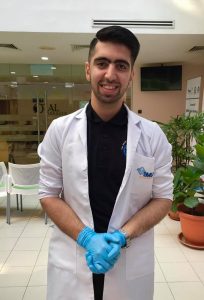 When the time came for me to choose a degree, I started to think about the bigger picture. Although I had the chance to study medicine, I decided to go with biomedical science and pursue a career in scientific research. In my mind, by being a researcher, I could have a positive impact on a larger portion of the population and help enhance the quality of their lives. Plus, biomedical science would allow me to tap into my interest in science, the biology of the human body and my curiosity for discovery. But how did I get to that conclusion? Many career advisors believe that “passion” is important when planning. Living in a majority Asian-based population, many parents give importance to money and social status. Although money and social status are important, I believe passion is what makes one’s life more meaningful. But it’s important to note, passion doesn’t merely come from what you’re interested in. If you’re passionate to be a nutritionist, for instance, it’s important to do your research. Look at the contents you will study, try talking to lecturers prior to choosing a degree, or talk and shadow those in the profession so that you have a better idea of what the job actually is. Choosing a university was next, which was no easy task. I was looking for a university that not only excels academically, but also provides an environment that encourages independence, self-learning, student-lecturer discussions, as well as opportunities to explore the science world outside of just the university. And IMU offered all that. In addition, receiving the IMU Scholarship, which I am extremely grateful for, allowed me to continue my studies without having to worry about the financial burden my family had to go through. And that’s how my journey in IMU began!
When the time came for me to choose a degree, I started to think about the bigger picture. Although I had the chance to study medicine, I decided to go with biomedical science and pursue a career in scientific research. In my mind, by being a researcher, I could have a positive impact on a larger portion of the population and help enhance the quality of their lives. Plus, biomedical science would allow me to tap into my interest in science, the biology of the human body and my curiosity for discovery. But how did I get to that conclusion? Many career advisors believe that “passion” is important when planning. Living in a majority Asian-based population, many parents give importance to money and social status. Although money and social status are important, I believe passion is what makes one’s life more meaningful. But it’s important to note, passion doesn’t merely come from what you’re interested in. If you’re passionate to be a nutritionist, for instance, it’s important to do your research. Look at the contents you will study, try talking to lecturers prior to choosing a degree, or talk and shadow those in the profession so that you have a better idea of what the job actually is. Choosing a university was next, which was no easy task. I was looking for a university that not only excels academically, but also provides an environment that encourages independence, self-learning, student-lecturer discussions, as well as opportunities to explore the science world outside of just the university. And IMU offered all that. In addition, receiving the IMU Scholarship, which I am extremely grateful for, allowed me to continue my studies without having to worry about the financial burden my family had to go through. And that’s how my journey in IMU began!
| What is Biomedical Science? |
|---|
| If you ever chose to study biomedical science, expect people to ask you what the course is all about! And what are its differences with other courses such as biology or even medicine. So, let’s clear that up for those who might be curious! Biomedical science is about understanding the anatomy, physiology, and pathology of the human body while acquiring techniques to investigate each part. At the same time, as students learn how to ask the right questions and the ways they can find answers to those questions, they gain the potential to push the boundaries of medicine and healthcare by coming up with new scientific findings, be it a new treatment for cancer, or a previously unknown system in bacteria such as CRISPR/Cas9 that helps edit genes. Apart from research, biomedical scientists have the option of working in various industries such as insurance and cosmetics as underwriters, salespersons, quality control officers, and many more. |
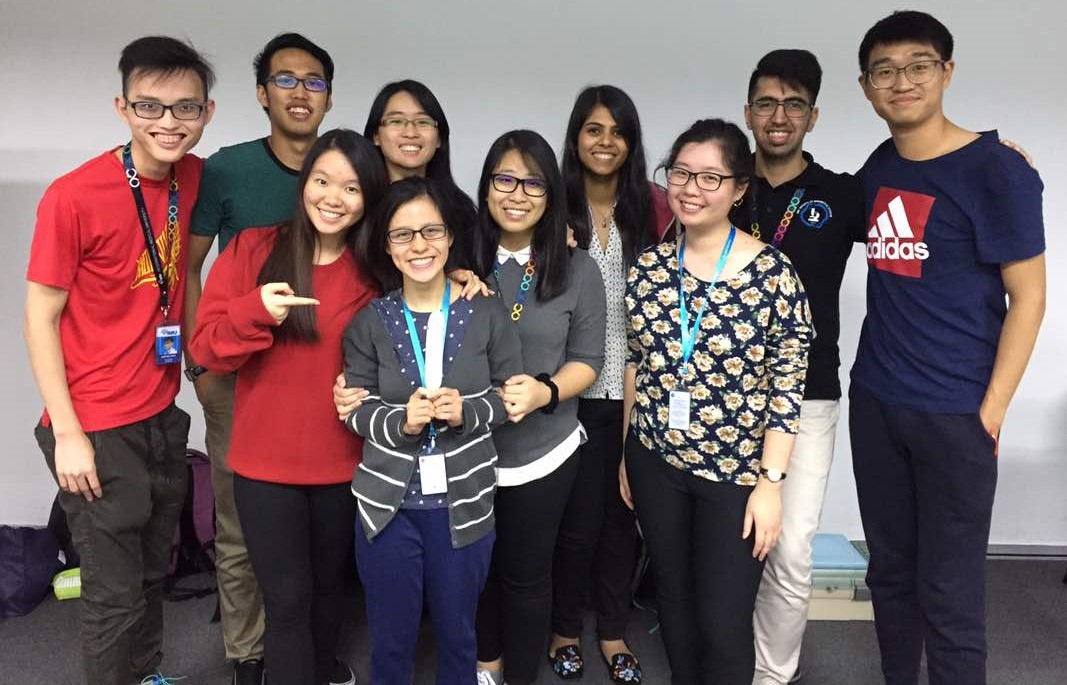
Challenging hardships and not giving up! Life of a university student is full of challenges and opportunities. It all comes down to how you embrace the different experiences you face! My degree-journey was one of the hardest times in my life; not just academically, but also a difficult period of my life in which I had to figure many things out by myself; from learning to take care of myself alone, to taking various responsibilities within the university, and earning money to support myself financially. Of course, the intense workload and compact schedules did not help.
In her book, mindset, Dr Carol Dweck breaks down two types of mindsets; the fixed mindset and the growth mindset. Those with a growth mindset embrace the difficulties and look at them as “opportunities” to grow. They believe their skills, knowledge, and ability to absorb is not limited. On the other hand, people with a fixed mindset limit themselves and believe their abilities are finite. Of course, this applies to many stages in life and there’s more to it. But I can certainly tell you, if you obtain a growth mindset, you will go far! Without doubt, IMU and its personnel, lecturers, mentors, and supportive university staff (special shout-out to the Student Services Department) played a huge part. I am thankful to you all! I can’t count the number of times I approached them to bring up a problem, clarify an issue whether academic or personal, or even just rant about how stressed I was feeling. In the end, graduating from IMU was bitter-sweet; having to leave my IMU family was sad, but I feel excited moving forwards. My family and I were filled with joy when I got to know I was the recipient of Tun Zahir Merit Award. Receiving this award meant I was doing something right! And it serves as a symbol that pushing through and not giving up when times are hard does pay off. Life in IMU One of the main highlights of my journey in the biomedical science course was launching the IMU Society of Biomedical Science (ISBS). The BM115 cohort and I managed to be pioneers for this society, which is affiliated with the Institute of Biomedical Science, UK. Science is all about collaboration, discussion, brainstorming, and letting others know what we do. And ISBS is based on these principles to give IMU students the chance to know students and employers from all over the world and share their findings and experience with them. Creating our society also started a spark for students of other courses to start their own. A trend that, I believe, is fruitful for both students and the university. (https://www.facebook.com/ISBSIMU/) More on this at IBLS Day and The Inauguration of ISBS: A Milestone for Biomedical Scientists in the Making! Organising a week-long orientation programme for new students as the organising chairperson was another highlight and challenge of my university life. All these opportunities given to me by the university allowed me to become a better leader with opportunities to meet inspiring people who I met and worked with along the way, and in general, grow more as a person. (https://www.facebook.com/enchante16/) ![]() Apart from all these extra-curricular activities, IMU’s attention to community service through IMU Cares is highly applaudable. Through IMU Cares, I manage to volunteer and later on co-organise a project to help spastic children at Spastic Children’s Association of Selangor and Federal Territories (SCASFT). In another project I volunteered in, a small team was sent to refugee centres to teach kids English. All these experiences were extremely humbling and showed me the world from an entirely different perspective.
Apart from all these extra-curricular activities, IMU’s attention to community service through IMU Cares is highly applaudable. Through IMU Cares, I manage to volunteer and later on co-organise a project to help spastic children at Spastic Children’s Association of Selangor and Federal Territories (SCASFT). In another project I volunteered in, a small team was sent to refugee centres to teach kids English. All these experiences were extremely humbling and showed me the world from an entirely different perspective.
| What’s next? |
|---|
| Graduating with first class honours from IMU’s 3-year honours programme, with a bunch of other achievements to my resume, has gotten me a full tuition fee and living allowance scholarship from University of Auckland in New Zealand to pursue my PhD in Biomedical Science. I want to take this opportunity to first thank my wonderful family who have invested so much from themselves in me! I can never thank you enough. To my friends, your support, and friendship has been a crucial part of why I am where I am. To my partner, I could not have done this without your continuous encouragements. And finally, I want to thank IMU, for gifting me with a scholarship to complete my bachelor’s, and for being an excellent academic institution based in Malaysia. |
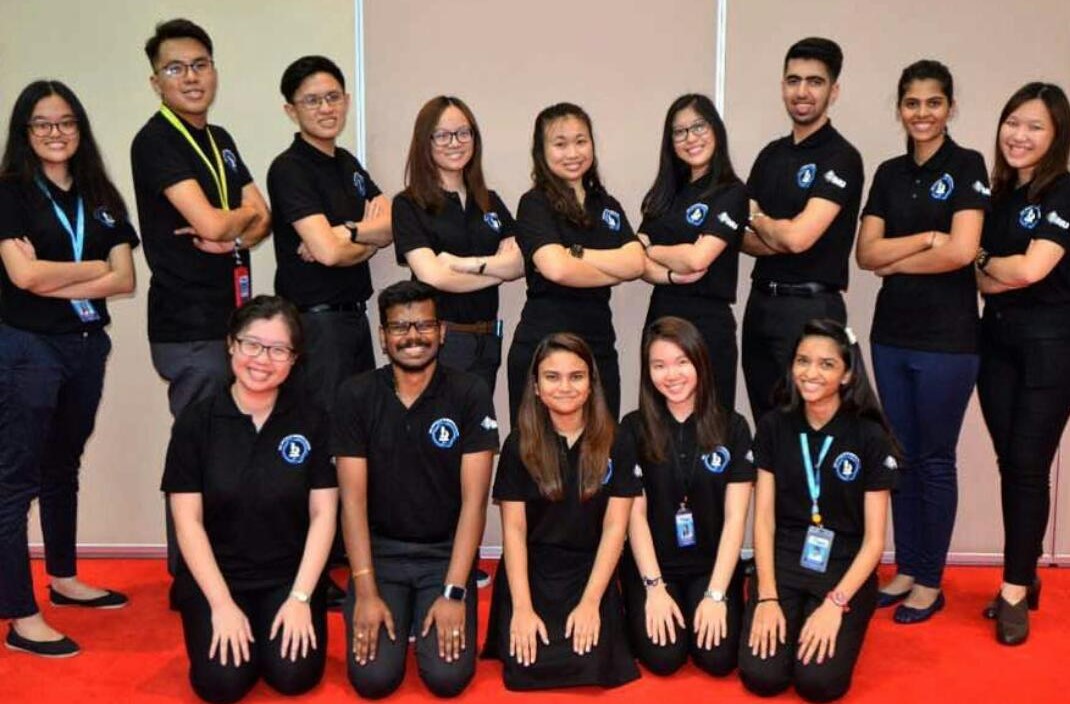
Written by IMU Biomedical Science graduate, Hossein Jahedi.
Related article: The International Medical University Confers One of its Founders with the Honorary Doctor of Medical Education




